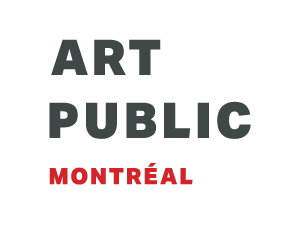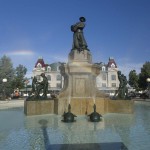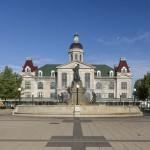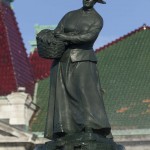
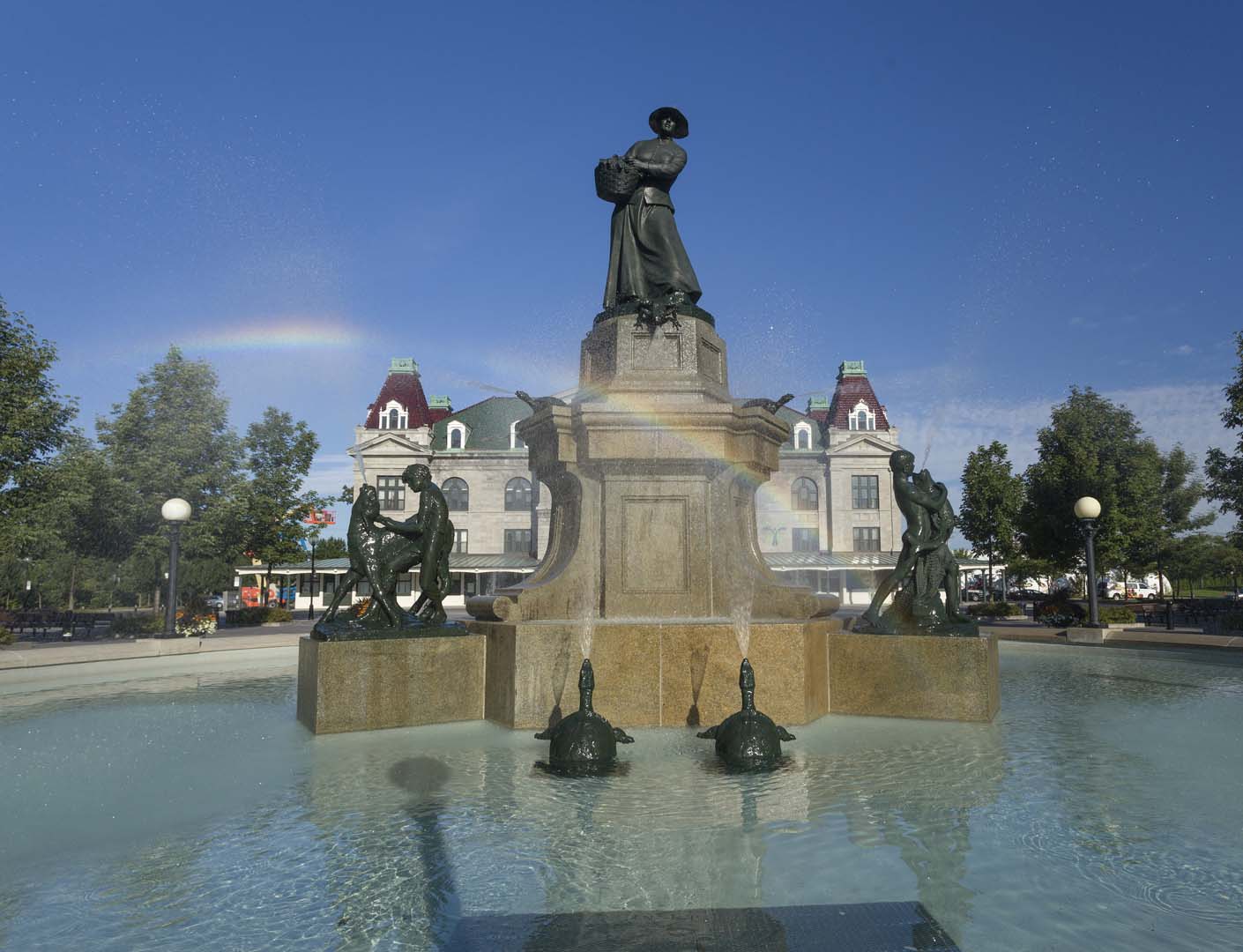
Born in 1878 in Sainte-Élizabeth-de-Warwick, in the Bois-Francs region, Alfred Laliberté received training at the Conseil des arts et manufactures in Montréal; when he was 23, he went to study at the prestigious École des beaux-arts de Paris. He returned to Canada in 1907 and became a professor at the École des beaux-arts de Montréal in 1922.
A prolific artist, Laliberté produced more than 920 sculptures. Some were portrayals of important historical figures, including statues of Father Brébeuf and Father Marquette in Québec City, whereas others evoked rural traditions and legends, such as the series of bronzes commissioned by the Québec government in 1928. Laliberté was long regarded as Québec’s “national sculptor”.
- 10 Artworks
- 35min
- Le cycle de la pollinisation
 Untitled
Untitled 
Artwork description
The fountain is formed of a large hexagonal base on which stand four bronzes of human figures. To the east, a naked boy holds a salmon in his arms; to the west, another boy pulls a calf’s ear; on the north, yet another boy holds a struggling turkey in his arms. On top of the base is a sculpture of a female farmer holding a basket of victuals against her hip. Finally, three frogs and three small turtles also adorn the ensemble, and six large turtles, placed in pairs, stand in the basin and spit water.
Erected in a developing city at a time when the rural exodus was in full swing, the artwork is related to French Canadian patrimony and traditional values. It faithfully represents nationalism and the celebration of agriculture, characteristic of the “sacred soil” current that marked the arts in Québec at the time. Nevertheless, it does not stray from realism and the contemporaneity of the scene. In fact, the fountain, which once served a practical purpose as it provided the site with water, represents the activities of a public market and the daily life of its times.
This monument is considered important in Laliberté’s career as it afforded him the opportunity to obtain a number of subsequent public commissions.
